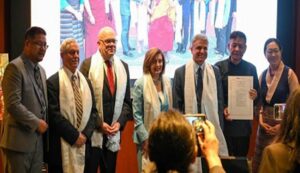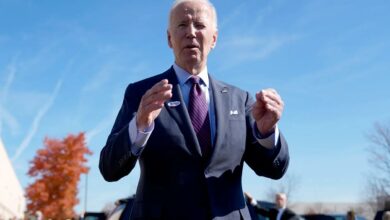CTA political leader Sikyong Penpa Tsering held several important meetings in Washington DC
Sikyong Penpa Tsering, the political head of the Central Tibetan Administration (CTA), made a number of significant appearances in Washington, DC, with the goal of addressing major concerns impacting the Tibetan people and bolstering worldwide support for the Tibetan cause.

According to a statement released by the Central Tibetan Administration (CTA), Sikyong met with Richard R. Verma, the Deputy Secretary for Management and Resources of the United States.
As the former US Ambassador to India, Verma has extensive knowledge of Tibetan issues and took a personal interest in the health of the Dalai Lama, a Tibetan spiritual leader, especially when the leader had knee surgery recently. Verma showed his ongoing dedication to Tibetan problems throughout their conversation, which highlighted the close linkages between the US and Tibetan populations.
Following this meeting, Uzra Zeya, the U.S. Special Coordinator for Tibetan Issues and Under Secretary for Civilian Security, Democracy, and Human Rights, spoke for an hour.
Sikyong thanked Under Secretary Zeya for her unwavering commitment to the Tibetan cause and assistance. Alison Bartel, Senior Advisor in the Office of the Under Secretary, Representative Namgyal Choedup, and members from the Bureau of Democracy, Human Rights, and Labor (DRL) and the Bureau of Population, Refugees, and Migration (PRM) attended the meeting.
Sikyong met with Senate Foreign Relations Committee staffers from the majority and minority parties to wrap off his meetings. The continuing human rights issues in Tibet as well as the wider geopolitical ramifications of Tibet’s fight for independence and cultural preservation were the main topics of this important conversation.
The Central Tibetan Administration’s continuous diplomatic efforts to further the Tibetan cause internationally were demonstrated by Sikyong’s discussions in Washington, DC. Sikyong continues to push for broader worldwide acknowledgment of Tibet’s distinct culture and human rights challenges via these discussions with the public and U.S. authorities.
A complicated geopolitical struggle, the Tibet-China conflict centers on issues of cultural identity, human rights, and national sovereignty. The political standing of Tibet, its connection with China, and the rights of Tibetans living under Chinese rule are at its core. Without a solution, the problem continues to get international attention and has important historical, cultural, and political ramifications.





